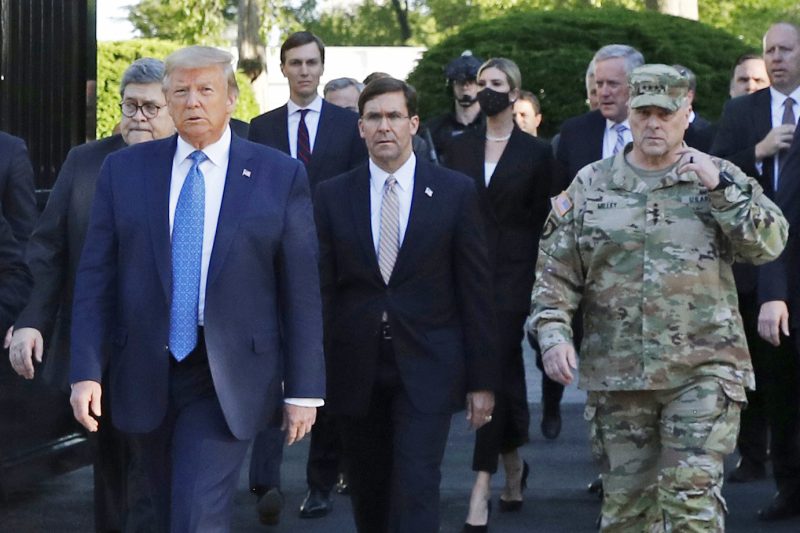Article Body:
As the political landscape across the globe becomes increasingly polarized, disagreement extends all the way from policy intricacies down to individual ideologies. One such debate that has persisted since the tenure of President Donald Trump began is — is the 45th president of the United States a fascist? This controversial question has divided opinions, even amongst Trump’s closest advisors.
One pronounced voice in this debate is that of Steve Bannon. Bannon, the former White House Chief Strategist under President Trump’s administration, employs the term economic nationalist to describe Trump and seems to differ from allegations regarding Trump’s fascist ideology. He suggests Trump focuses on individual national interests, implying a degree of complexity to his policy methodologies that diverge from the supposedly rigid structure of fascism.
Conversely, one of Trump’s former confidants, Michael Cohen, has accused the former president of being an autocrat who brandishes some subtle elements of fascism. A former personal attorney to Trump, Cohen emerged as a key witness against Trump in the inquiry into alleged Russian interference in the 2016 presidential elections. His allegation illustrates deep-seated issues within Trump’s administration, casting a pall of doubt over Trump’s staunch denial of propagating fascism.
In response to these accusations, Trump has categorically refuted all claims of harboring fascist ideologies. He asserts that his focus has always been on America’s welfare, intent on bolstering policies that sustain the nation’s economy and international standing. His denouncement, however, hasn’t silenced critics who associate his hard-line stances on immigration and national security with fascist tendencies.
One could argue that branding Trump a fascist may result from a misunderstanding or misuse of the term. Political science provides a strict definition of fascism that includes violent suppression of opposition, dictatorial power, forcible suppression of opposition, and extreme nationalist ideology. While critics may accuse Trump of exhibiting some of these traits, the broader meaning of fascism remains generally inconsistent with Trump’s political practices.
Beyond the pros and cons of allegations and defenses, much of the debate on Trump’s alleged fascism is subjective, based on differing interpretations of his actions and their comparisons to historical applications of fascism. Moreover, the diversity of views among past advisors mirrors a larger national and global conversation about the nature of Trump’s personal and political character.
The jury is still out on whether Trump indeed is a fascist or not. But the varying beliefs amongst his former advisers and the general public underscores the complexity of his presidency. While the accusations of Trump being a fascist fly fast and thick, they should not eclipse the need for rational discussions about the actual policies and actions enacted during his tenure.
Ultimately, the discourse surrounding Trump’s alleged fascist tendencies illuminates bigger questions about the definitions of political ideologies and their implications. It also pushes the boundaries of political discussions, forcing all persons involved, whether they are supporters or critics, to engage in a deeper analysis of political activities and their repercussions on democracy.
